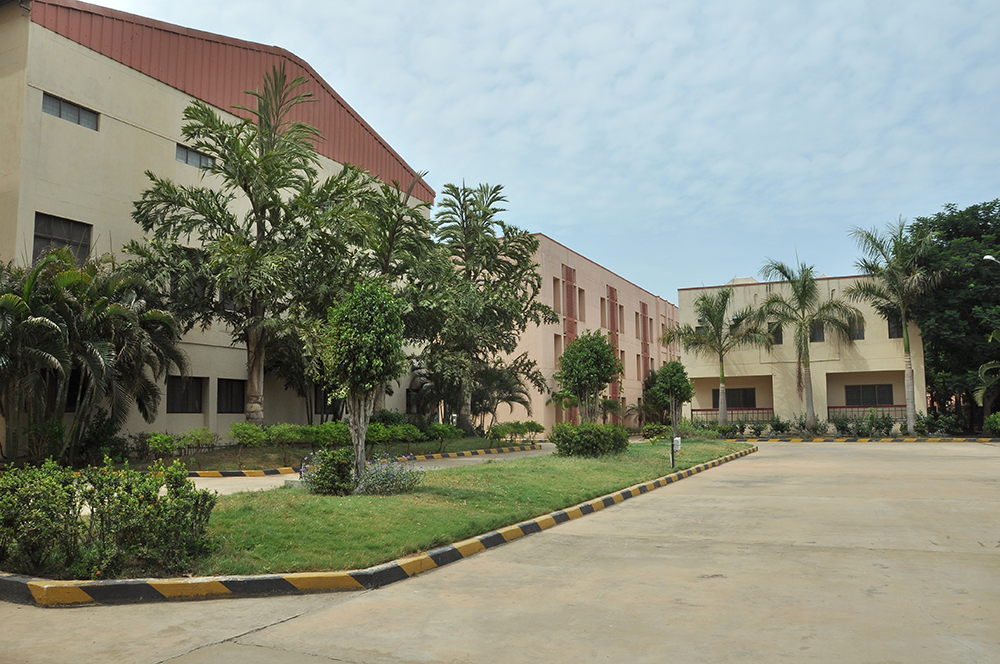Capacity building initiatives in epidemiology and public health
- In 2001, initiated a two-year, competency based Master of Applied Epidemiology-Field Epidemiology Training Programme for in-service medical officers working with state health departments. During 2001-10, trained more than 100 candidates from 18 Indian states. Several of the graduates are holding key positions in disease surveillance and other public health programmes in different states.
- The ICMR School of Public Health at NIE started its Master of Public Health (MPH) programme in July 2008 in order to address the acute shortage of trained public health human resources in the country.
Intervention studies
Leprosy
- Conducted controlled, double blind, randomized prophylactic leprosy vaccine trial in Chingleput district, Tamil Nadu, 1993-2002 with 171,400 leprosy-free volunteers vaccinated with one of the four vaccines (BCG, BCG+ killed M. leprae, Mycobacterium w and ICRC) or placebo.
- Conducted WHO-sponsored controlled trials of single dose of Rifampicin, Ofloxacin, Minocycline (ROM) for treatment of paucibacillary leprosy that demonstrated comparable efficacy of ROM to WHO-MDT for six months.
- Co-ordinated WHO-TDR supported, multi-centric trial of Uniform multi-drug therapy (U-MDT) for all pauci and multi-bacillary leprosy patients which indicated promising interim results with respect to clinical status of skin lesions and low level of relapses.
Traditional medicines
- Central Bio-statistical Monitoring Unit (CBMU) conducted multi-centric trials for six disease conditions including trials on Ksharasootra for fistula-in-ano and Vijayasar for type 2 diabetes.
Rabies
- Multi-centric bridging study on Intradermal administration of tissue culture Anti Rabies Vaccines (Abhayrab PVRV, Coonoor PVRV, Rabipur PCECV) that found a sustained immune response above the protective level and were recommended for use as post-exposure prophylaxis of animal bites in India.
Cohort studies
Non-communicable diseases
- Initiated cohort study for cardiovascular risk factors in a rural population in Tamil Nadu covering more than 10,000 adults residing in 11 villages of Kancheepuram and Thiruvallur districts of Tamil Nadu in 2005-07.
Cross-sectional studies
Leprosy
- Estimated the risk of disability among leprosy patients after release from treatment (3.24 per 100 person-years among MB patients and 0.2 per 100 person years among PB patients).
HIV/AIDS
- HIV Sentinel Surveillance being carried out in 7 southern states of India (Tamil Nadu, Pondicherry, Andra Pradesh, Karnataka, Kerala, Odisha
- Established the cohort of injection drug users in Chennai determine the effect of HIV, co-morbidities, HAART use and drug use on nutritional and metabolic abnormalities among IDUs in Chennai.
- Conducted surveys and managed the data for Integrated behavioral and biological Assessment (IBBA): Rounds 1 (2006) and 2 (2009), Tamil Nadu among the high risk groups (HRGs) in five Avahan districts of Tamil Nadu. Round 1 estimates along with data from other sources such as NFHS and HSS contributed to the revision of the estimated number of persons living with HIV in India.
- Estimated the prevalence of sexually transmitted infections and sexual practices among the injection drug users in Chennai and their regular sex partners.
- Conducted a mixed methods cross-sectional survey in Namakkal district of Tamil Nadu to estimate the HIV/HSV2 prevalence and associated risk factors among truck drivers and their wives and demonstrated feasibility and acceptability of audio computer-assisted interview (ACASI) system for collecting sensitive data from poorly literate, non-English speaking, mostly rural populations of women and men in India.
Non-communicable diseases
- Cross-sectional study of Cardiovascular disease risk factors among industrial workers in Chennai, 2004-05.
- Pilot study in restaurants and educational institutions in Chennai and Vellore districts in Tamil Nadu that demonstrated poor compliance to the tobacco-free law.
Health Systems Research
- Evaluated the clinic based hypertension screening and treatment in the Primary Health centers and government hospitals to assess hypertension control rates and awareness about life style modification among patients with hypertension in the Virudhunagar and Sivagangai districts in Tamil Nadu and demonstrated feasibility and effectiveness of hypertension management in the public sector facilities leading to scale-up to entire state.
- Evaluated Comprehensive Emergency Obstetric and newborn care (CEmONC) centres of Tamil Nadu and identified certain gaps in terms of availability of health care personnel particularly specialists, which led to an increase in women referred out of the CEmONC centres.
- Evaluated the pilot project of cervical cancer screening at the primary care level being implemented by the Tamil Nadu Health Systems Project in Thanjavur and Theni districts and demonstrated the feasibility of using visual inspection as a screening tool for cancer cervix at primary care level.
Disease surveillance
- Coordinated the multi-centric, hospital based surveillance for rotavirus disease among under-five children in 10 hospitals in 7 different regions of India.
Methodological studies
- Brainstormed solutions to problems in the use of Geographical Information System in Public Health through series of workshops in 2011-12.
- Developed a new approach " Reverse Tracking Method” to estimate the size of High risk population for HIV.
- Identified an alternative approach to analyze data collected by respondent driven sampling method.
- Developed modules for systematic outbreak investigations.
- Developed a simulation mathematical model for leprosy (SIMLEP) to project epidemiologic trends over time, producing output on indicators such as prevalence, incidence and case-detection rates of leprosy.
- Validated usefulness of lot quality assurance sampling for leprosy elimination monitoring under field conditions.
